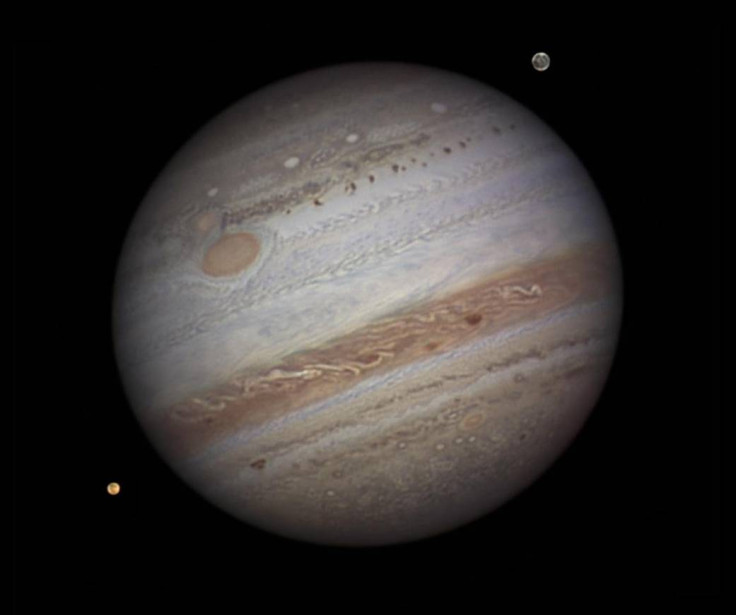'Rogue' asteroid goes round the Sun and Jupiter the wrong way
The asteroid nicknamed Bee-Zed has so far managed to avoid a collision.
A "rogue" asteroid has been orbiting the Sun in the wrong direction for the last million years, narrowly avoiding collision with Jupiter, the biggest planet in our solar system.
This asteroid is known as 2015 BZ509 (and nicknamed Bee-Zed). It was discovered in January 2015. Although it has fascinated astronomers ever since, little is known about its origins to date. It is thought to be coming from the same place as Halley's comet, and it has a diameter of about three kilometres but scientists have yet to find out if it is an icy comet or a rocky asteroid.
However, it's most intriguing feature is that it is one of only 82 asteroids (out of the million or so known asteroids in the solar system) to travel around the Sun in a "retrograde" motion – in other words, clockwise.
It goes against the flow all other asteroids orbiting Jupiter.
In fact, Bee-Zed is the only asteroid in this solar system identified to have this opposite, retrograde orbit around the Sun while at the same time sharing a planet's orbital space – and risking colliding with all other asteroids in that space. It is thus known as a retrograde co-orbital asteroid.
How Bee-Zed avoids collision
A team of scientists from Western University's Department of Physics and Astronomy (Ontario, Canada) has analysed the asteroid's movements to find out how it successfully avoided both Jupiter and the 6,000 other asteroids sharing the giant planet's space for at least a million years. Their findings are now published in the journal Nature.
Using the Binocular Camera on the Large Binocular Telescope in Mt. Graham, Arizona, to conduct observation over 300 days, the researchers have calculated that Bee-Zed is able to maintain a stable orbit which allows it to stay off the path of other asteroids.

The calculations conducted by the team show the orbit has been stable for at least a million years and will be stable for at least a million more.
More research will now be conducted to pierce all of Bee-Zed's secrets. Investigations will also continue to see if retrograde co-orbital asteroids of Jupiter and other planets, like this one, are more common than previously thought.
© Copyright IBTimes 2025. All rights reserved.






















